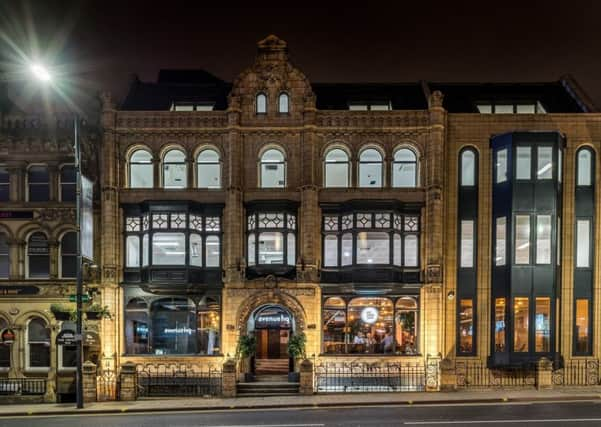Property industry braced for change as office sector changes mirror retail overhaul


Speaking during a visit to Leeds yesterday, Dr Nick Axford, global head of research at property adviser Avison Young, said there were big similarities between what is going on the office and retail sectors.
“A lot of the transactions of goods are shifting away from physical retail and a lot of the routine interactions and functions that we used to use in offices are changing because data exchange happens virtually,” he told The Yorkshire Post.
Advertisement
Hide AdAdvertisement
Hide Ad“I still passionately believe that physical retail has a role to play when it’s offering an experience for people and I think offices are moving in the same direction. People will go to the office because they want to be there, not because they have to be there.
“You can do everything digitally but it’s different to sitting in a room with a group of people and brainstorming or bumping into someone at the water cooler and having an unexpected conversation. It’s out of those conversations that innovation happens.”
Dr Axford said co-working spaces had ‘blown apart’ the traditional office structure for large corporates as well as small businesses and solo entrepreneurs.
“Some big co-working brands have taken over whole buildings for a single occupier,” he said. “The big companies aren’t necessarily looking for the flexibility. They want the building management skill that the company is offering.
Advertisement
Hide AdAdvertisement
Hide Ad“Then there are other people who just want to pay for the day, drink coffee and chat with other Fintech people doing the same thing. All of those services are already bleeding out into the wider mainstream office environment.”
Dr Axford believes that in the future, major organisations will want to retain about 70 per cent of their offices in traditional buildings with conventional long leases. There will also be a continued drive towards shorter leases and multifunctional space.
He predicted that 10-15 per cent of space for most major occupiers will be in co-working buildings or similar.
Dr Axford was speaking ahead of Avison Young’s Innovation in Property - Understanding the Future event in Leeds yesterday afternoon.
Advertisement
Hide AdAdvertisement
Hide AdThe seminar considered how technological advances are changing the way we work, live and spend our leisure time and discussed how those working in property can best respond.
Stuart Howie, Avison Young’s head of regeneration, said: “In the past, investors would look at the strength of the occupier and buy anything with a good name.
“Now they are recognising that investing in high quality place in a good environment is a really good thing to do rather than just investing in a good tenant.”
Claire Paraskeva, principal and managing director of the Leeds office of Avison Young, added: “It’s entrepreneurs and developers who think innovatively and design their properties around what the occupier wants who will flourish.
Advertisement
Hide AdAdvertisement
Hide Ad“We’ve seen a sea change from long term leases into serviced offices with communal breakout areas and these are the types of things we want to see more of.
“Where you allow connection between previously unconnected parties, that’s where innovation will thrive.”